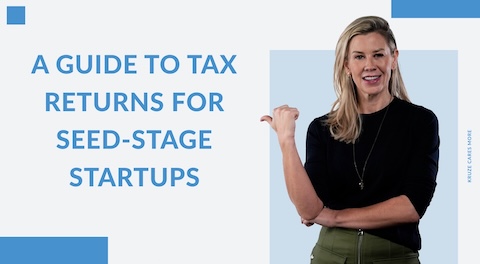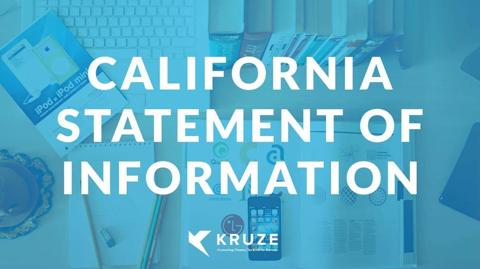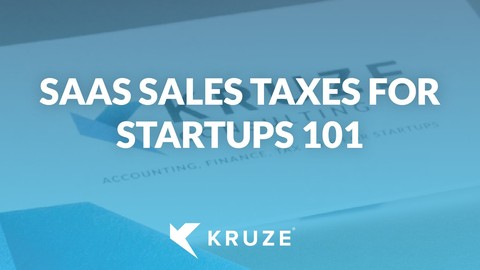What is Qualified Small Business Stock (“QSBS”) and why does it matter for VC-backed startups?
QSBS refers to a tax benefit that can help investors in small businesses save up to $10M a year, or 10X your investment, in taxes, and is a very useful tax planning tool for venture capitalists and founders of technology startups.
Basic QSBS requirements are that the company needs to be a Delaware C-corp company. Additionally, it has to have less than $50 million in net assets on a tax basis. The startup must be in a hard science or innovation space, and the holder of the stock must own it for at least 5 years - those are the basic qualifications, although every company and shareholder is unique, so you’ll have to consult with a CPA to confirm that your stock holdings meet the requirements.
Warning for founders: VCs will often try to get founders to sign attestation documents that the money VCs are investing is going to get QSBS.
We do NOT recommend founders sign these documents - this may take on huge personal liability for founders, and since many of the eligibility requirements are dependent on the individual shareholder meeting requirements the actual eligibly is going to be outside of the founder’s control.
Understanding QSBS Through a Hypothetical Example
We’ll use a hypothetical example that illustrates the potential tax savings for startup founders if they can take advantage of this tax benefit.
A Simplified QSBS Benefit Example
Consider a founder who holds shares in a technology startup, structured as a Delaware C-corporation. These shares were initially obtained at a very low cost, close to $0 for tax purposes, and have been held for over five years, fulfilling one of the key QSBS requirements.
The startup is acquired, and the founder’s stake is valued at $20 million at the time of sale. Under QSBS regulations, assuming all criteria are met, the founder is eligible to exclude up to $10 million of the capital gains from federal taxes.
This means that instead of paying taxes on the entire $20 million, the founder can apply the QSBS exclusion to half of that amount. Assuming that the long-term capital gains tax rate is 20% for this founder, QSBS allows the founder to save $2 million in taxes, securing a net take-home amount significantly higher than would be possible without the QSBS exemption. So instead of getting $16 million in post-federal tax proceeds, the founder will get $18 million. That’s 12.5% more post tax!
So it’s pretty clear this has value, and it also explains why VCs are so interested in it.
High Level QSBS Eligibility Requirements
Here are the main, high-level eligibility requirements under Internal Revenue Code Section 1202 - remember, every company is unique, so work with your law firm and specialized QSBS advisors before claiming or attesting to this tax exclusion.
Company requirements
- C-Corporation Status: First off, your business must be a U.S. C-corporation when the stock is issued. No ifs, ands, or buts about it.
- Gross Assets: Keep an eye on your assets. They should not exceed $50 million before and immediately after issuing the stock. And yes, this includes the total cash raised through the stock issuance. For example, if you’ve raised $10M and are looking to raise another $41M, the new stock won’t qualify. It gets a bit tricky here since we’re talking tax basis assets, not the GAAP balance sheet your bookkeeper might give you.
- Active Business Requirement: At least 80% of your company’s assets must be actively used in qualifying business activities. Also, a heads up: if you’re investing excess cash hoping for a return, be careful not to inadvertently classify your startup as a hedge fund in the eyes of the IRS. Check out our article on QSBS and treasury/cash management to learn more.
- Not in certain industries: Unfortunately, certain service industries like healthcare, law, and financial services don’t make the cut.
- Domestic Corporation: Your corporation must operate within the United States to qualify.
- No Significant Redemptions: Watch out for redeeming too much stock within a two-year window surrounding the issuance. This can affect not just your eligibility but potentially other stockholders’ as well. You really need to work closely with lawyers on this one, and also carefully manage your cap table (of course we recommend using a cap table software for that!)
Stock requirements
- Acquisition Method: The stock needs to be acquired directly from the company or through an underwriter in exchange for money, property, or services (but not for being an underwriter or swapping other stock).
- Holding Period: You’ve got to hold onto the stock for more than five years to enjoy the QSBS gain exclusion benefits.
- Eligible Stockholder: The exclusion is mainly for individuals, certain trusts, and estates. Corporations, you’re out of luck here. Partnerships can hold QSBS, but the rules are intricate—something founders might not fully see, especially with venture capital partnerships.
- Issuance Date: Only stock issued after August 10, 1993, is eligible.
Do VCs care about QSBS?
Yes! Venture capitalists care about QSBS too, because the GPs in the fund can actually benefit from it. And while a lot of the limited partners in many venture capital funds tend to be non-tax paying foundations, endowments, the GPs are usually individuals, and they get the benefit from QSBS.
And it’s one of the reasons you’ll see in a lot of funding documents, the legal docs will actually ask the startup to rep or warrant that QSBS is alive in the company at the time of investment. This is something that founders need to be a bit careful with, but it’s a good thing generally to do on behalf of your investors.
Can a Company Convert from a LLC to C-Corp to Become QSBS Eligible?
We have seen a few instances where an expensive lawyer may be able to help an LLC convert into a C-Corp to become eligible for Qualified Small Business Stock. But we are not qualified to opine on that and strongly recommend you start your company as a Delaware C-corp. It’s not easy to do, very complicated.
LLCs are NOT QSBS Eligible
At Kruze, as tax advisors to many startups, wee see so many companies coming to us who mistakenly incorporate as an LLC. This is usually because they are taking tax advice from a friend or family member who doesn’t understand the startup-tax landscape. To be QSBS eligible, a small business must be a C-Corp; LLCs are not eligible.
And if a startup is going to raise VC funding, it will have to convert to a Delaware C-Corp. VCs invest in Delaware C-corps because they’re not pass-through entities. That means like the gains or losses don’t hit the VC fund on an annual basis. They also know the case law in Delaware really well, which is well established for corporations of all sizes.
Is QSBS a Tax Credit?
Tax nerd alert: QSBS (Qualified Small Business Stock) provides a tax benefit, but it’s not a tax credit. The technical term for the QSBS benefit is an “exclusion.” Specifically, it allows eligible taxpayers to exclude from their income a certain percentage (up to 100% depending on when the stock was acquired) of the capital gains realized from the sale or exchange of QSBS, subject to specific limitations. This compares to a tax credit, which reduces the amount the taxpayer owes - the exclusion lets the taxpayer simply lowers the overall amount of income that is subject to taxes.
This exclusion under Section 1202 of the Internal Revenue Code means that instead of reducing the amount of tax owed dollar for dollar like a tax credit, it reduces the taxable income by excluding a portion of the capital gains that would otherwise be taxable. The exclusion applies to the sale of QSBS held for more than five years, with the amount of gain exclusion capped at the greater of $10 million or 10 times the taxpayer’s basis in the stock.















